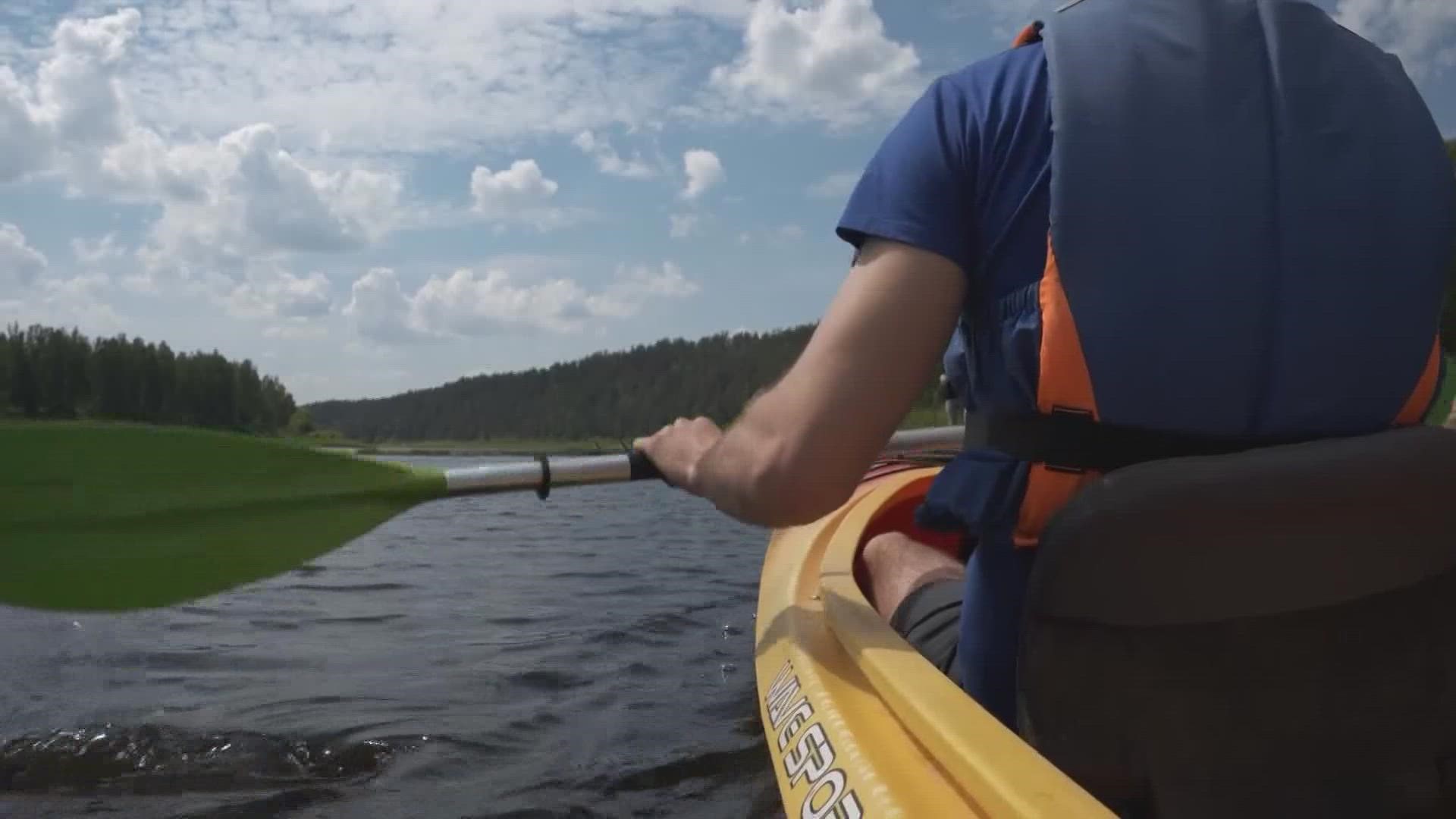SAN ANTONIO — Shallow water may not seem dangerous but if you go underwater and hold your breath too long, you can get "Shallow Water Blackout" which can stimulate genetic triggers leading to various causes of death.
Jennifer Northway, the Director of Injury Prevention with University Health told us, "There are lots of scenarios where adults have been unintentionally knocked out and then even shallow water can become a grave risk to their life. You know whether they're using jet skis or they're paddling around in shallow water at a local lake."
Unlike in a pool, a river or lake can have many unknowns making it even more important to stay aware of what you may not be able to see.
Dr. Pedro Nelson Chavez, the Medical Director of the Pediatric ICU at Baptist Children's Hospital told us, "If you're going to stand when the current is coming, like in lakes, rivers open in the ocean, you don't know when you lose your footing. And also you get tired because you fight in the current and you can drown in that water too."
The American Red Cross has these important safety precautions to keep in mind:
- Know your limitations, including physical fitness, medical conditions.
- Never swim alone; swim with lifeguards and/or water watchers present.
- Wear a U.S. Coast Guard-approved life-jacket appropriate for your weight and size.
Always wear the life jacket while boating, regardless of swimming skill.
Northway added, "Just as turbulence is a unexpected hazard, when you're flying, waves can be an unexpected hazard when you're on a boat. And so because you have these unexpected hazards there, there are rules around the importance of wearing life jackets."
Even experienced swimmers sometimes forget to understand and adjust for the unique risks of the water environment such as river currents, ski boats, sudden change in water temperature, shallow or unclear water, and using the buddy system.
Dr. Chavez also said, "Be in close contact with the person, avoid alcohol, drug use, avoid nocturnal swimming. Those things are always essential."
To get a free "Water Watcher" safety tag and whistle email University Health at InjuryPrevention@uhs-sa.com.

